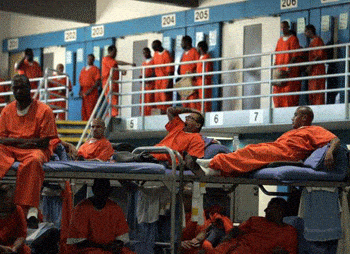With President Barack Obama announcing Monday the commutation of the sentences of 46 US government prisoners, Reuters calculates that the president “has now commuted the sentences of 89 prisoners, the vast majority of whom were nonviolent drug offenders who applied for clemency under an initiative the White House began in April 2014.” The freeing of any drug war victims is reason for celebrations. Yet, according to the Federal Bureau of Prisons 95,265 people (48.7% of all federal prison inmates) are in US government prisons for drug convictions. How about freeing them all?
As Obama indicated in his announcement of his newest round of commutations, drug law violations are nonviolent crimes. In addition, they are victimless crimes. With no violence and no victim in drug crimes, it is absurd for the US government to incarcerate a single person for a drug crime for even one more day.
There is no need to wait for clemency requests and laborious study of the facts of each prisoner’s case. The proper action is to eliminate the drug crimes portion of all federal prison inmates’ sentences. This would result in people convicted only of drug crimes being immediately freed. People convicted of drug and other crimes would be freed as soon as they have served the portions of their sentences arising from nondrug convictions, meaning many of them would be freed immediately as well.
What’s the hold up? President Jimmy Carter, on his first full day in office, pardoned thousands of people for the nonviolent and victimless crime of evading the US government’s military conscription. Obama could take similarly heroic action by freeing thousands of drug war prisoners from federal prisons.


